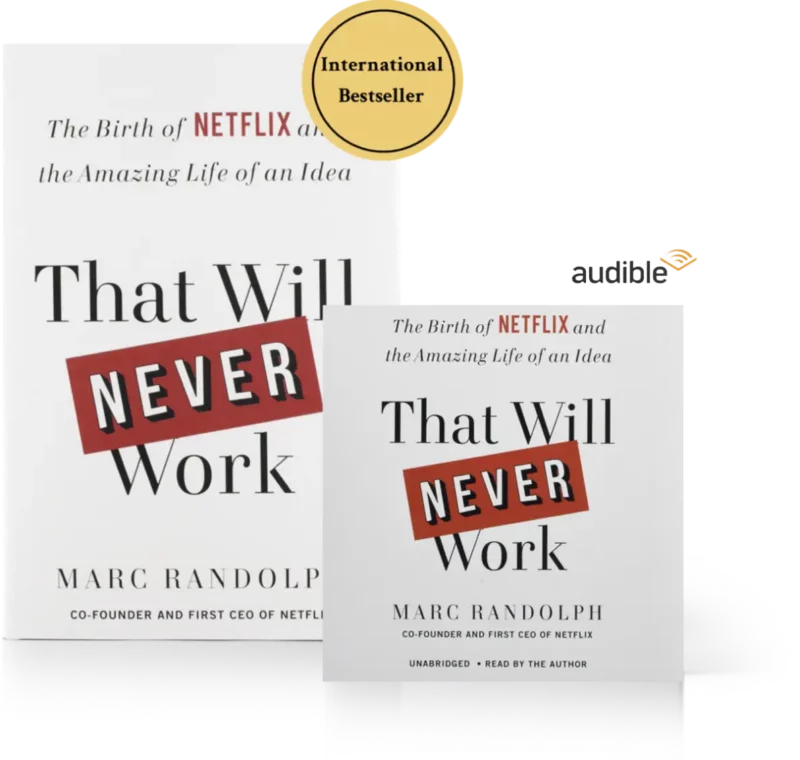The First Thing You Learn in Skateboarding is How to Fall.
And shouldn’t that be the case for starting anything?

I get interviewed a lot, and by far the most frequent question I get asked is: “What was your biggest failure, and what did you learn from it?”
Besides being common, it’s also one of the most difficult questions to answer. And not because I haven’t had any failures…but because I’ve had so many of them.
I’ve been doing this startup thing for a long time, so I’ve had the opportunity to make almost every mistake it’s possible to make. I’ve spent too much, and I’ve spent too little. I’ve gone too slowly and gone too fast. I’ve made mistakes in who I hired and who I passed on. You name it, I’ve fucked it up.
But my prodigious output of failures is not why it’s so hard for me to identify my biggest one. There are actually three main reasons.
The first is that I’ve figured out how to minimize the size of my failures. I’ve learned that the true sign of a great entrepreneur isn’t how good their ideas are, it’s their ability to creatively figure out quick, cheap, and easy ways to try them. If each of your swings are quick, cheap, and easy… then your failures will be too.
What gets you in trouble are the big swings. If you spend 18 months and 95% of your seed funding launching a product for which you’ve done no validation work, that’s going to make a huge crater when it crashes to earth. But if you can collide your idea with a real customer in just a few days and for a few hundred dollars, that failure is going to be inconsequential.
The second reason I have a hard time identifying the biggest failure is that I don’t really see failed experiments as failures anymore. Just because something didn’t work doesn’t mean it was a waste, as long as I learned something from it. So it wasn’t a failure… it was a learning opportunity.
I’m always able to detect some glimmer of benefit or insight, even in the darkest black hole—often a new idea for what to try next. And at the very least when something doesn’t work, I’ve learned that it’s now safe to close off that avenue of inquiry.
But the third and biggest reason is that it’s hard to tell—in the moment—whether something actually is a failure.
In late 2000, when Reed and I flew to Dallas to try to sell Netflix to Blockbuster, we were desperate. It was during the depths of the dot-com meltdown. We had no way to raise more money. And in the cruelest cut of all, we had finally found a good product/market fit and the resulting rapid growth was eating up all of our remaining cash. Convincing Blockbuster to buy us was the only path we could see to saving the company.
So when Blockbuster laughed at us? When they sent us packing back to California with our tails between our legs? When it became apparent that not only were they not going to save us, but were going to compete with us? It felt like the biggest failure of my life.
But was it really?
What would have happened to Netflix if I had been “successful” and convinced Blockbuster to buy us? Would that have saved us? Or would Blockbuster have screwed things up? Would the streaming era have evolved the way it did? Would “Netflix and chill” be a thing?
I could give you dozens of other examples: The job interviews I failed (only to find something even better at the next company); the relationships I messed up (only to end up with the wife I’ve now spent more than forty years with). Any number of seemingly grievous failures that, over time, turned out to yield fantastic outcomes.
The truth is, it’s hard to tell what the future ramifications are going to be for any of your decisions. So don’t be so hard on yourself. If you’re not failing, you’re not moving forward. If the swings are small enough, the misses will be too. If you learn something from each try that doesn’t work…well then maybe it wasn’t a failure after all.
So to answer that initial question: is there a single horrendous failure that I’ve learned the most from? No, because I’ve learned something important from all of them.
But the most important thing I’ve learned about failures is that I can’t ever know which of them might end up being the best thing that ever happened to me. And I’ll take that risk all day long.
To find other things I’ve written and much more, check out MarcRandolph.com
RECOMMENDED FOR YOU
Failing Gracefully
Podcast Episode 72
Is it a Culture Problem or a Hiring Problem?
October 25, 2022 • 38 min
